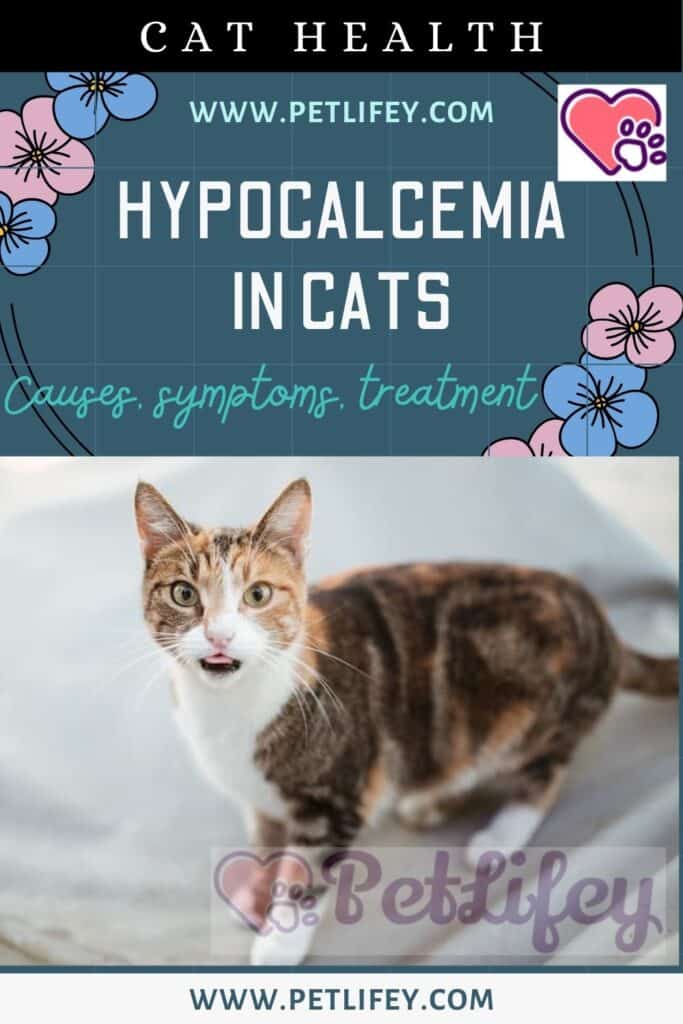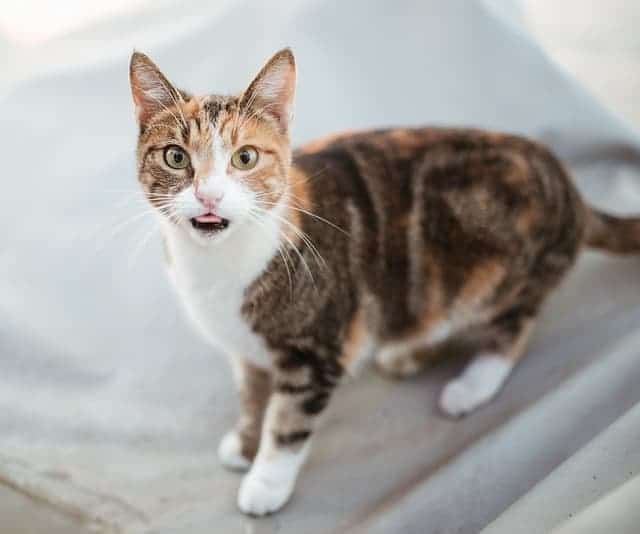Hypocalcemia in the cat, a rare condition in the feline but which can lead to serious consequences. Let’s see what are the possible causes, its symptoms and therapy.

In the life of your pet feline, there can be difficult times when you feel helpless and would like to do more to help him. A rare disease can manifest itself in him and there are many questions his master asks himself, how it was possible and what is the best way to deal with it without risking further damage to his condition. Let’s see, together, what hypocalcemia in cats is and how to intervene in this regard.
Hypocalcemia in cats: common causes and symptoms
It is a fairly rare pathology in the feline but it is good to know in order to deal with the different symptoms that occur in him. Here are the common triggers and symptoms of this particular disease.
When adopting a cat, you are never as protective as you really want. The health and well-being of your cat also depends on the attention and daily care of his human friend, but this is not always enough.
A disease, not very frequently, which can affect the cat is hypocalcemia. What is it specifically about? We are talking about a decrease in the level of calcium, or when the value of it falls below 7 mg / dl in the blood in kittens.
There are conditions that favor the development of this disease in the feline, such as hyperphosphatemia , continuous losses of calcium with milk; the intestines, bones and kidneys of the feline do not reabsorb enough calcium and chelation of blood calcium.
The triggering causes of hypocalcemia in cats are as follows:
- Decreased intestinal resorption
- Kidney failure in cats
- Ethylene glycol poisoning
- Hypoparathyroidism
- Pancreatitis cat
- Pregnancy with puerperal tetany
It should also be known that when the level of calcium occurs, the level of albumin in the blood is also assessed and asymptomatic forms of hypocalcemia may occur. The common symptoms that arise with this pathology are various:
- Tense abdomen
- Anorexia
- Wheezing of the cat
- Tachycardia
- Muffled heart rhythm
- Nervousness
- Rubbing of the muzzle
- The feline moves stiffly
- Fever in cats
- Tetany
- Contractions of the ears and muscles of the face
- Weakness of the femoral wrist
- Cataract cat
- Convulsions in cats , without loss of urine, faeces or consciousness
The feline and the decrease in calcium: therapy and useful advice

To help your cat affected by this problem, it is necessary to understand the cause of the decrease in calcium. Laboratory tests and specific examinations must be carried out by the veterinarian, who will propose the suitable therapy for the cat. We read more below.
As we have mentioned, it is essential to understand what is the triggering cause of hypocalcemia in cats, through anamnesis and in- depth investigations.
If the dog has one or more of the symptoms listed above, the trusted veterinarian can proceed with the administration of calcium (calcium gluconate).
This therapy therefore aims to eliminate the cause of the problem in the animal. During the treatment, however, it is essential to always monitor the feline, to keep the abnormal heart rhythm in the cat under control.
If the cat develops bradycardia, the therapy will have to be stopped to re-stabilize it and then try again.
After the dog has reached stable conditions, calcium can be administered orally or subcutaneously along with vitamin D, with the dosages prescribed exclusively by the doctor.
Excessive calcium administration can cause fatal damage to the cat.
Finally, be careful not to stress the hairy with strong excitement or too much daily physical exercise, as they can worsen the symptoms that have occurred, putting their health at risk.






